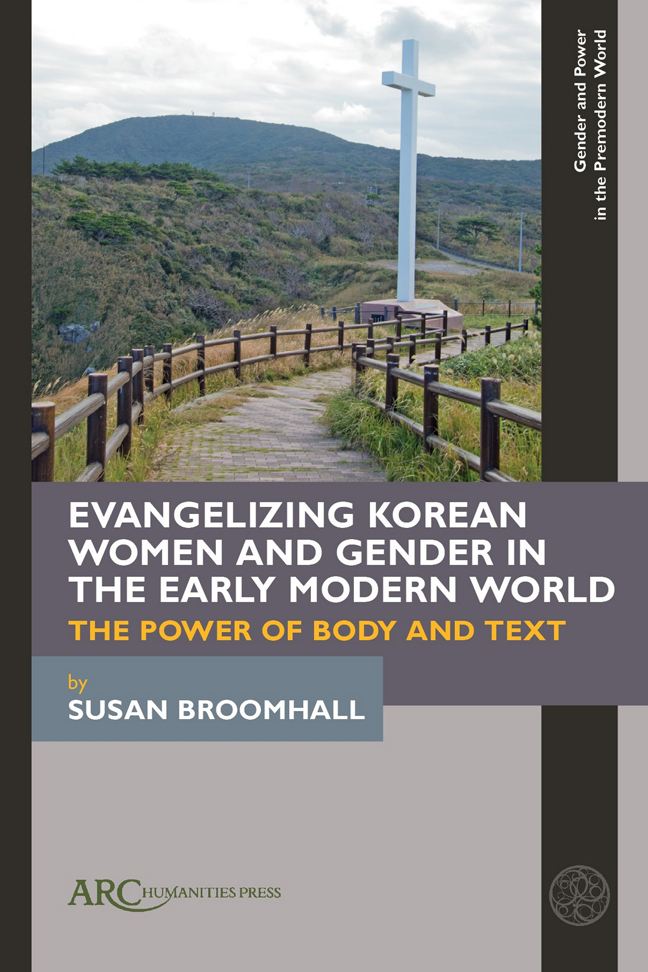2 - Community
Published online by Cambridge University Press: 18 February 2024
Summary
IN THE LAST years of Europe's sixteenth century, evangelized Koreans began to form a specific cohort in Japan. The distinctive features of this group were of interest to Christian writers, both from the Society of Jesus and from the mendicant orders that began a more fully fledged mission campaign in Japan after 1600. The mission strategies of these orders varied considerably, including in terms of whom they targeted, leading to some distinctions in their reports about Koreans; but, on the whole, whether from their vantage points in Japan or as observers and collectors of circulating information from nodes in Macao and Manila, the Christian archive broadly discerned and made differences in the spiritual experiences of Korean women and men. These works underlined particular understandings of evangelized Korean masculinities and femininities, which shaped the way writers assumed and described participation and contributions of Korean women and men to Christian practice, and how they could further mission activities. The Christian archive revealed some of the potential meanings of Korean identity and of Korean networks in Japan as well as community members’ complicated notions of, and desire for, belonging that they negotiated with the Christian orders. Moreover, it revealed the perceived importance and power of the gendered body, as the site of affective expression, for interpreting Korean spiritual experience.
Becoming Christian: Gender, the Body, and Affectivity
In implicit contrast to the warrior barbarianism that characterized the way Koreans (more specifically, Korean men) had been described before the Japanese invasions, subsequently, Catholic authors repeatedly emphasized contrasting characteristics of the Korean people whom they encountered outside the kingdom. In 1627, the Spanish Jesuit Pedro Morejón praised Koreans as “gentle, docile, and naturally beautiful.” As they came increasingly into contact with captive Koreans, Jesuit writers revised and refined their impressions of the characteristics of people from the Joseon kingdom and the distinctive forms of masculinities and femininities that they perceived to be performed by them. These displays of gender- distinct behaviours were often related to faith- oriented affective expressions. Such gendered expressions that Society men saw in Korean women and men formed part of their narratives of how Koreans were engaged by Christian teachings and practised their faith. They also shaped the archive of knowledge circulating among Jesuits about how the Joseon kingdom might one day be approached with a dedicated mission.
- Type
- Chapter
- Information
- Evangelizing Korean Women and Gender in the Early Modern WorldThe Power of Body and Text, pp. 35 - 62Publisher: Amsterdam University PressPrint publication year: 2023



